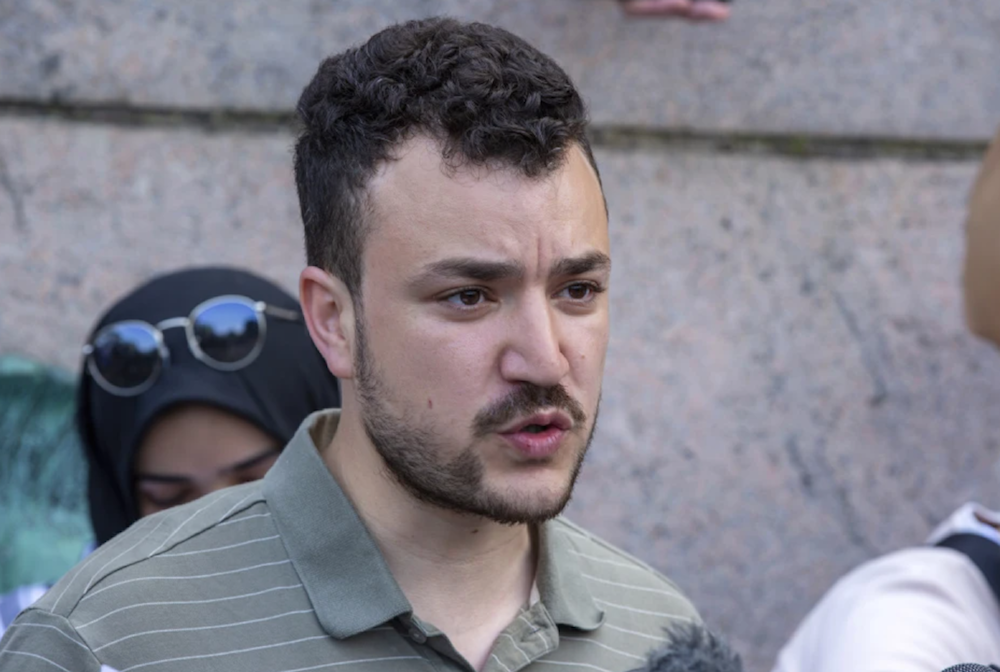Mahmoud Khalil ordered released on bail: Axios
The Trump administration has argued that Khalil poses a threat to US foreign policy interests and has pushed for his deportation.
-

Student negotiator Mahmoud Khalil is seen at a pro-Palestine protest encampment on the Columbia University campus in New York on April 29, 2024. (AP)
A federal judge on Friday ordered the release of Columbia University alumnus Mahmoud Khalil from immigration detention, marking a significant legal victory for the pro-Palestine activist who had been held for over three months without criminal charges.
According to US media, Khalil is accused of failing to disclose his employment and his involvement in a campaign to boycott “Israel” in his permanent residency application.
Since his arrest in New York on March 8 over his role as a spokesperson for the campus protest movement opposing the war on Gaza, Khalil has become a symbol of President Trump’s crackdown on a student movement he deems “antisemitic.”
Following his arrest by Immigration and Customs Enforcement (ICE), Khalil, a Syrian-born recent Columbia graduate of Palestinian descent with permanent residency, was transferred to a detention center in Louisiana, nearly 2,000 km away, pending deportation.
Judge Michael Farbiarz ruled that Khalil's detention appeared to be an unconstitutional retaliation for his political speech, telling the court he was “persuaded” by evidence suggesting immigration authorities were using deportation proceedings to punish Khalil for his pro-Palestinian activism.
"There is at least something to the underlying claim that there is an effort to use the immigration charge here to punish Mr. Khalil," Farbiarz said, according to The New York Times.
“And of course, that would be unconstitutional," he added.
Khalil, a legal US resident and prominent organizer of pro-Palestinian protests at Columbia University, is now expected to return to New York to be with his wife and newborn son while his case continues.
"Since he was arrested Khalil's attorneys said he will be able to return to New York to be with his wife and expressing his political beliefs about Palestine," Khalil’s attorney, Noor Zafar, said in a statement.
The Department of Homeland Security sharply criticized the judge’s decision, arguing that only an immigration judge—not a district court—has the authority to determine Khalil’s detention status.
DHS Assistant Secretary Tricia McLaughlin expressed the ruling was a "vital First Amendment principle" that the government cannot abuse the law to "punish speech it disfavors," and accused members of the judicial branch of undermining national security.
The Trump administration has argued that Khalil poses a threat to US foreign policy interests and has pushed for his deportation.

 3 Min Read
3 Min Read










